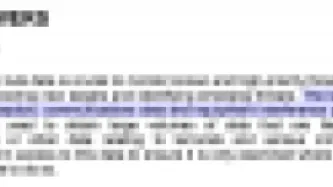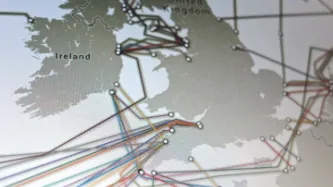Advanced Search
Content Type: News & Analysis
The Investigatory Powers Bill introduced on Tuesday 1 March contains the same range of ‘bulk powers’ envisaged in the earlier draft: bulk interception warrants; bulk acquisition warrants; bulk equipment interference warrants; and bulk personal dataset warrants.
These powers, if adopted as currently envisaged in the Bill, would codify a practice of mass, untargeted surveillance by the UK intelligence services.
In the last couple of years, some of the mass surveillance powers used by…
Content Type: Long Read
Few revelations have been been as troubling for the right to privacy as uncovering the scope of the Five Eyes alliance. The intelligence club made up of Australia, Canada, New Zealand, the United Kingdom and the United States has integrated its collection efforts, staff, bases, and analysis programs. Yet the legal rulebook governing how the agencies ensure the most comprehensive joint surveillance effort in the history of mankind remains secret.
The little that is known suggests a…
Content Type: Long Read
Many people imagine intelligence sharing to be a practice whereby men in trench coats silently slide manilla envelopes containing anonymous tip-offs or intelligence reports marked TOP SECRET across tables in smoke-filled rooms.
While such practices certainly exist, they represent only a tiny slice of intelligence sharing activities, and are vastly overshadowed by the massive exchange of bulk unanlysed (raw) intelligence data that takes place between the UK and its Five Eyes allies.…
Content Type: Long Read
Bad analogies about surveillance technology pervade newspaper reports, politicians’ speeches, and legal arguments. While it’s natural to want simple explanations to understand complex technology, it does us a disservice when governments, the media, or the courts mislead us through analogies that are inadequate. It is even worse if these analogies are used as a basis for policy change.
Privacy International’s legal challenge against GCHQ’s mass surveillance rests…
Content Type: Long Read
The recent revelations, made possible by NSA-whistleblower Edward Snowden, of the reach and scope of global surveillance practices have prompted a fundamental re- examination of the role of intelligence services in conducting coordinated cross-border surveillance.
The Five Eyes alliance of States – comprised of the United States National Security Agency (NSA), the United Kingdom’s Government Communications Headquarters (GCHQ), Canada’s Communications Security Establishment Canada (CSEC), the…
Content Type: Report
The recent revelations, made possible by NSA-whistleblower Edward Snowden, of the reach and scope of global surveillance practices have prompted a fundamental re-examination of the role of intelligence services in conducting coordinated cross-border surveillance.
The Five Eyes alliance of States – comprised of the United States National Security Agency (NSA), the United Kingdom’s Government Communications Headquarters (GCHQ), Canada’s Communications Security Establishment Canada (CSEC), the…
Content Type: News & Analysis
With the launch of the "Eyes Wide Open" project, Privacy International has put together a fact sheet about the secretive Five Eyes alliance. Consider this a guide to the secret surveillance alliance that has infiltrated every aspect of the modern global communications system.
Beginning in 1946, an alliance of five English-speaking countries (the US, the UK, Australia, Canada and New Zealand) developed a series of bilateral agreements over more than a decade that became known as the UKUSA…
Content Type: Long Read
Britain's spy agency, GCHQ, is secretly conducting mass surveillance by tapping fibre optic cables, giving it access to huge amounts of data on both innocent citizens and targeted suspects, according to a report in the Guardian.
Mass, indiscriminate surveillance of this kind goes against an individual's fundamental human right to privacy. The scope and scale of this program, which monitors the entire British public and much of the world, is neither necessary nor proportionate and thus,…







